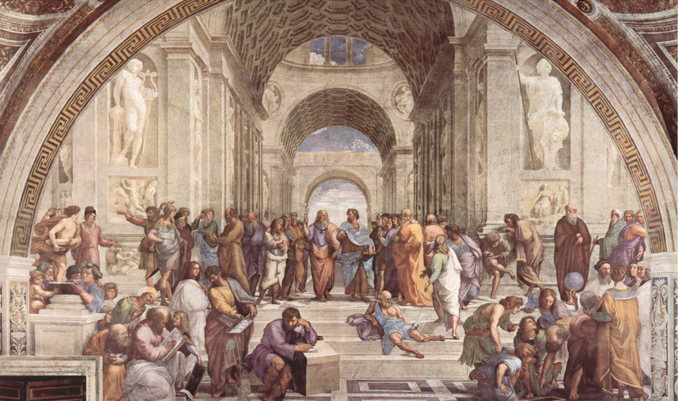Site Navigation Menu

The Camden Philosophical Society meets on the third Tuesday of each month for reading and discussion.
The Camden Philosophical Society will be shifting both back — to Aristotle’s predecessor in Greek philosophy Anaximander — and forward to contemporary physicist and science popularizer Carlo Rovelli at its next regularly scheduled gathering on Tuesday, April 18, from 3:30-5:30 pm. We will accomplish this with a discussion of selected parts of Rovelli’s latest book, Anaximander and the Birth of Science.
All are welcome to participate in this hybrid session, either in-person at the Picker Room of the Camden Public Library or by Zoom. If you wish to participate via Zoom, please let us know by return email (Reply All). You will receive a Zoom invitation on the morning of the meeting, Click on the “Join Zoom Meeting” link in that invitation at the time of the event.
Chapter 8 of Rovelli’s book is entitled, “What is Science?” It explores why science can’t be reduced to verifiable predictions, as some take to be the conclusion of philosopher of science Karl Popper; why uncertainty is the key to understanding in science; and why Kuhn’s theory of scientific revolutions underestimates how science builds on previous scientific achievements. Instead of discarding theories and trying other ones out, Rovelli argues, giants like Einstein relied faithfully on the work of their predecessors but produced radical results by “changing the rules of the game” – it was the concept of time itself he took to be no longer obvious and the assumption of simultaneity that needed rethinking. Rovelli asks the obvious follow-on question: If science is always changing, why is it reliable? His answer: “Because at any moment in history, this is the best description we have.” Reality is not a hypothetical or an unknowable thing. “It is that about which we do learn and know;” although our unfolding knowledge of it is fallible.
In Chapter 9, “Between Cultural Relativism and Absolute Thought,” Rovelli challenges the conclusion that all opinions about truth and falsehood are equally valid: “Being aware that we may be wrong is different from claiming that it is senseless to speak of right and wrong.” We are each immersed in cultures that differ in how they shape our thinking, but communication is possible, and learning from one another may crucially feed the desire to know that we’ve inherited from Eve.
Our ‘required’ reading will be Chapters 8 and 9 from Anaximander and the Birth of Science, which can be obtained for free in PDF or e-book form here: https://oceanofpdf.com/authors/carlo-rovelli/pdf-epub-anaximander-and-the-nature-of-science-download/ . The short “Introduction” to the book is also helpful and to be recommended.
This meeting will be happening in person as well as on Zoom. Contact Sarah Miller at sarahmiller@usa.net to let her know how you plan to attend and to receive a Zoom link.
